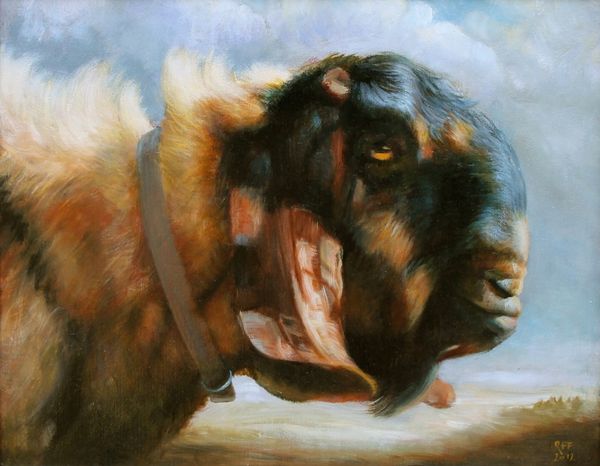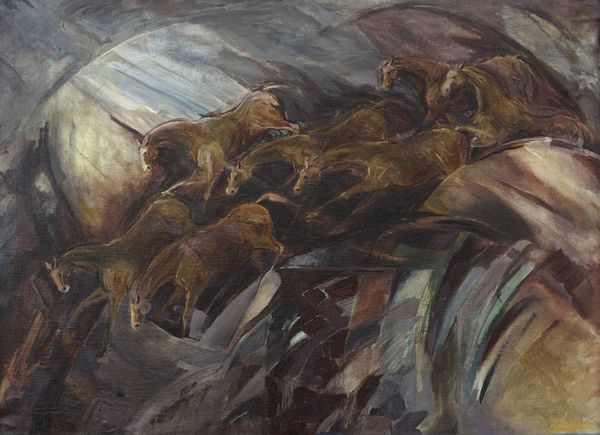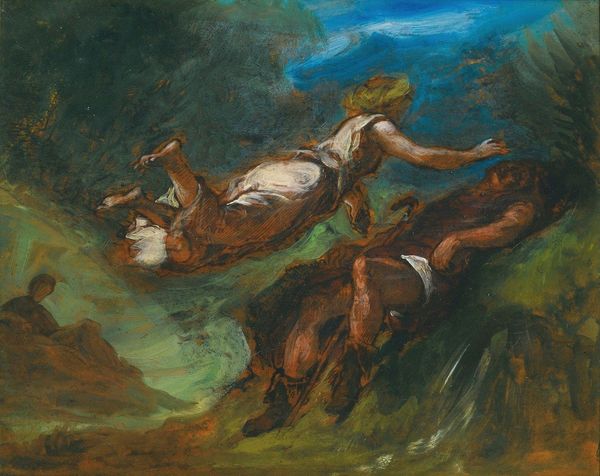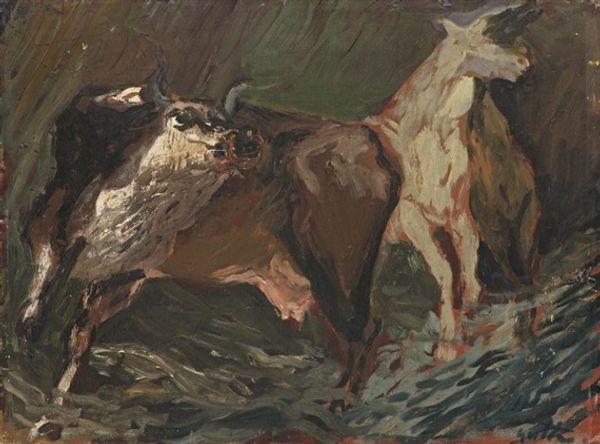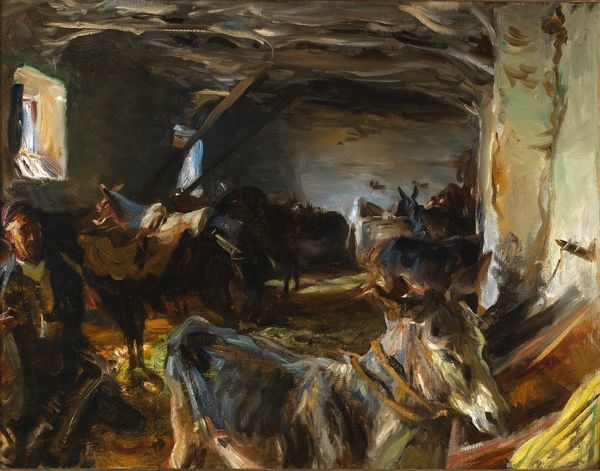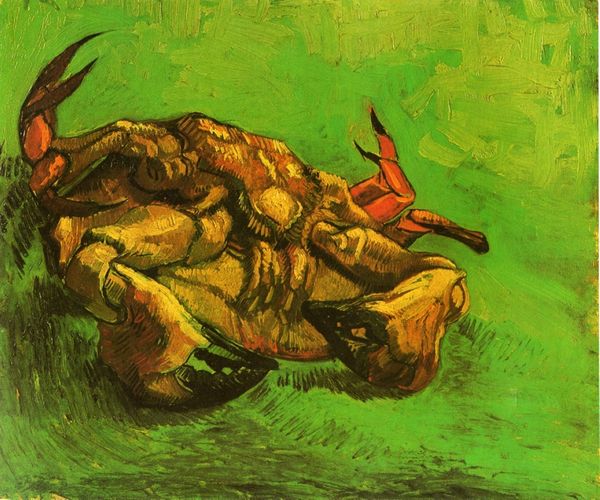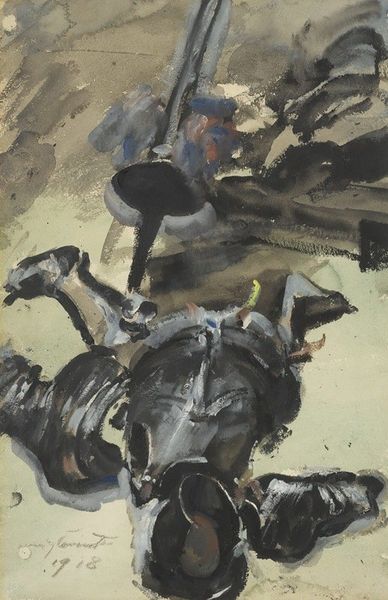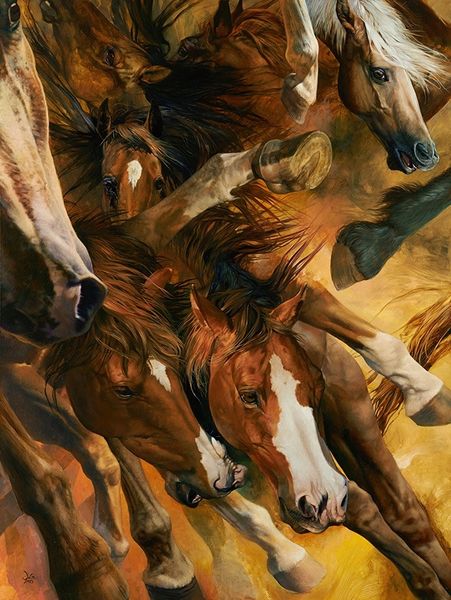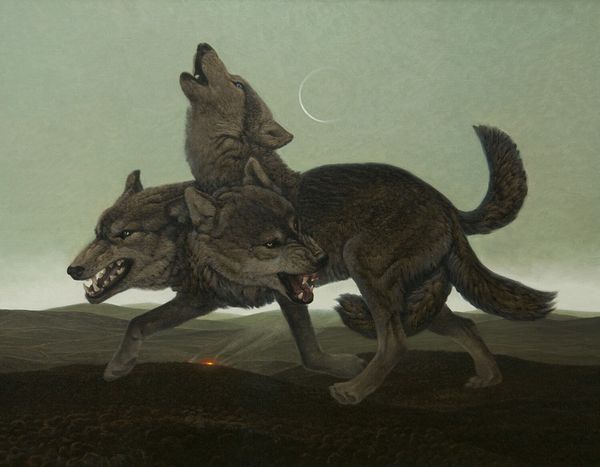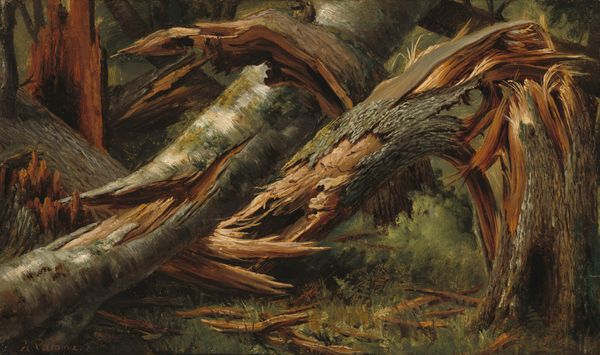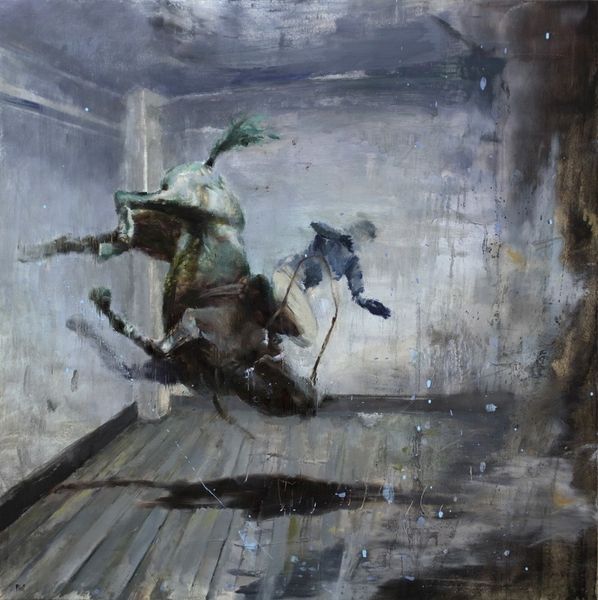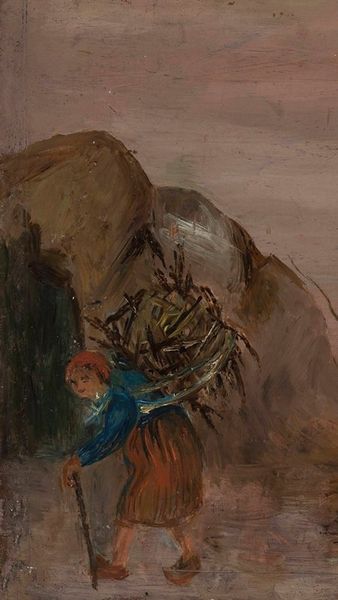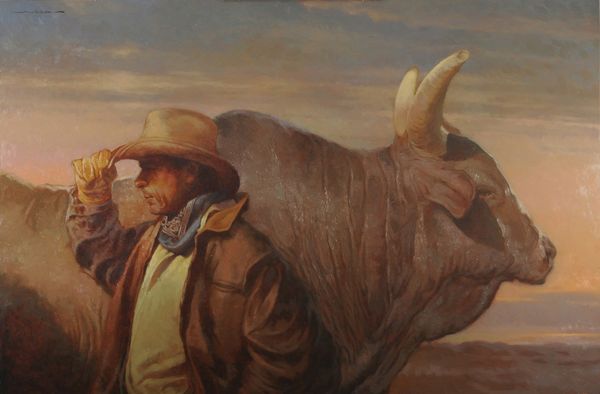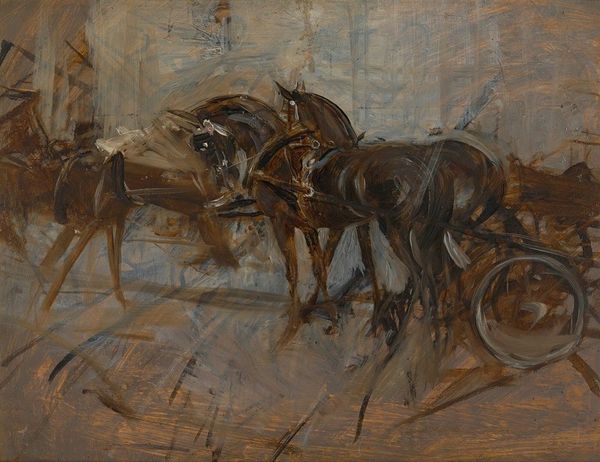
painting, oil-paint
#
painting
#
oil-paint
#
landscape
#
figuration
#
oil painting
#
orientalism
#
realism
Copyright: Basuki Abdullah,Fair Use
Editor: We're looking at "Planning for the Future," an oil painting attributed to Basuki Abdullah. It's a scene of a figure riding two water buffalo. The palette is mostly muted, but there's a sense of forward movement, almost frantic. What's your interpretation of this work? Curator: The "frantic" energy you pick up on is crucial. Abdullah, a painter celebrated across Southeast Asia, often depicted idyllic scenes. But let's think critically: whose "future" is being planned here? What social structures allow for this kind of relationship between human and animal? Editor: I see what you mean. The title implies progress, but there's an imbalance of power embedded in the image. The human figure seems to be urging them forward forcefully, toward that uncertain future. Curator: Exactly! Consider the historical context. Post-colonial Indonesia, seeking rapid modernization, often relied on agriculture. These water buffalo, they’re not just beasts of burden. They become symbols of a complicated relationship between tradition, labor, and the pressures of a globalizing world. What about the gender roles, we only see part of the rider. Editor: That makes me think about the lack of visibility for certain labor forces, and who actually benefits from this "progress." Also, are we meant to ignore the environmental cost? Curator: Precisely! The painting isn't just a landscape, it's a loaded representation of development and raises issues about sustainability. So how does your initial impression shift when you think about those things? Editor: It goes from seeming like a simple snapshot to a much more complex commentary. There's a tension between the romantic style and the reality of the scene it portrays. Curator: It reveals how art can both reflect and critique society, provoking necessary conversations about progress and social justice. Editor: This has totally changed how I see the piece. Now it feels like less of a celebration and more of an invitation to question what 'planning for the future' truly means.
Comments
No comments
Be the first to comment and join the conversation on the ultimate creative platform.
